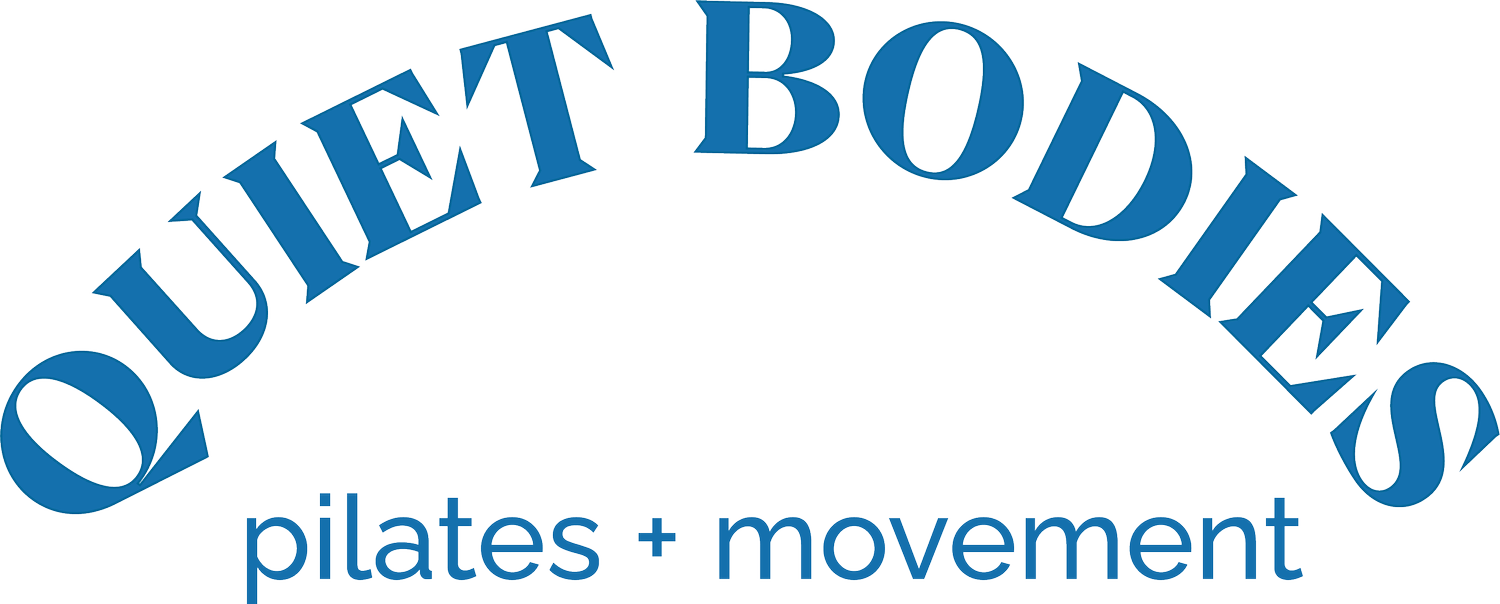How often should I do Pilates?
Ask any Pilates pro or die-hard their secret to getting the most out of their Pilates practice, and they will likely tell you practice and consistency are key, which is often not what we like to hear in our culture. We like things quickly, and we like to binge. Dedicating oneself to something can seem overwhelming, but I promise it's not.
Let's unpack how to get results from your Pilates practice, how often you should do Pilates, and how long each session should be.
Q: How often and for how long (workout duration) should we do Pilates?
Something to keep in mind is that Joe (Mr. Pilates) wanted people to practice Pilates nearly every day, and part of what makes Pilates work is consistency.
However, if daily practice seems impossible, stick with me! Here's some advice on how to get results from your practice while juggling your busy life.
If Joe wants us to practice Pilates nearly every day, that would be 5-7 hours of Pilates per week, right? Not necessarily. Joe's Contrology Series on the Mat should take 25-35 minutes to complete, and it's a full-body workout.
If you do Joe's Contrology Series for 25 minutes, five days a week, that's not even 90-minutes of cumulative exercise.
Daily practice seems less intimidating now, doesn't it?
That said, we don't need to listen to Joe. He was pretty intense. I recommend a minimum of two workouts per week, but ideally 3 or 4 (unless you are using Pilates in combination with other activities.)
However, depending on your schedule, the duration of each session could be short. If all you have is 20 minutes, 3-4 times a week, that will do you a world of good and get you results.
The point is that you can play with the duration of your sessions and frequency until you find the right balance for your life. Again, consistency is what matters.
Q: Is it better to do multiple short workouts or one long weekly workout?
Short workouts more frequently are more effective than one long workout per week, even if the duration is the same.
So if we take the Contrology example above, five 25-minute workouts will be more effective than one 90-minute long workout even though the cumulative duration is the same.
Here's why:
With something like Pilates, there is a certain amount of skill involved and a vocabulary or "routine." As a teacher, I notice that when my clients practice once a week, it's always like a review session when it comes to the shapes and positions we make, which can cause the pace of the workout to slow down, which means we get through less material, with less precision and less detail.
Think of it like a series on Netflix. If we space out the episodes by a few days, we don't need to watch the recap because it's still fresh in our minds, but if we leave 7-10 days in between episodes, the details start to get a little foggy, and that recap is necessary to jog the memory.
Practicing something like Pilates is precisely like that. The more time and space we have between sessions, the foggier the details become. Not to mention, you will feel stiffer too.
At Quiet Bodies, our group classes are 45 minutes, and our On-Demand workouts are 10-35 minutes long.
We do this intentionally to fit in more weekly workouts with less time commitment per session. In turn, we see better results AND retain the information in our mind and body. It's a win-win!
Q: How long will it take to see results from our Pilates Practice?
"In 10 sessions, you'll feel the difference, in 20 sessions, you'll see the difference, and in 30 sessions, you'll have a whole new body". - Joseph Pilates
Is this phrase true, or is it marketing BS from 1945?
Honestly, this is going to vary case by case. It depends on frequency, goals, and what you consider "results."
While I think there is truth to this famous quote, I dislike that this quote implies the aesthetics of one's body and weight loss, or maybe I am projecting. But to be honest, I don't think Joe intended this phrase to have anything to do with becoming thinner.
Nevertheless, if we remove diet culture from the equation, I promise you will indeed have a "whole new body" after consistent practice. However, it will still be your body, and that's pretty damn awesome. You will walk taller, feel more comfortable in your skin from improved strength and flexibility, and have more tools to approach pain and tightness in your daily life.
The takeaway:
We are all unique, and if you genuinely want to practice Pilates and reap its amazing benefits, then it's essential to sit down and consider how you can set yourself up for success with the tools you have at your disposal.
Be realistic with how much time you can/want to dedicate to Pilates and be as efficient as possible with that time.
My challenge for you this fall is to prioritize more frequency in your Pilates. Maybe just for a month? See how you feel! Even if that means adding in one quick 10-minute flow per week (like this one), I am certain it will make a difference in your body.
You have got nothing to lose and don't forget, have some fun!
Best,
Kala from QB

